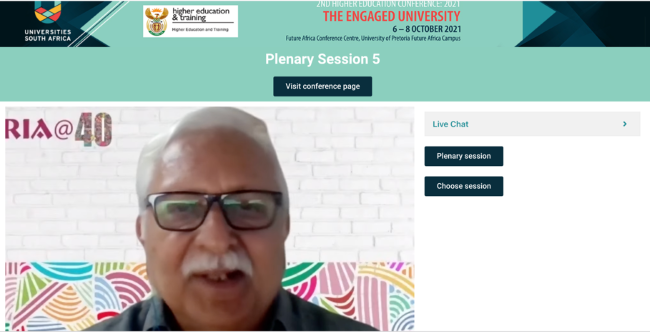Date/Time
Date(s) - 07/10/2021
5:15 pm
Categories No Categories

Dr. Tandon began by stating that in the Indian context, Higher Education Institutions are where young people meet different people from different backgrounds. The Preamble of the Indian Constitution talks about foundational values of freedom, equality, justice and fraternity. For young people to exercise their democratic right, gets narrowly defined as a voting right.
Dr. Tandon asked- is the purpose of Higher Education only to produce skilled labour force which can migrate to Silicon Valley or is it to inculcate the values of active citizenship? Citizenship is not a course in civics, it is practice in everyday life. The space that universities offer can be utilised to encourage conversations and debates with different others. While this debate is on the campuses and in those spaces in HEIs, it also teaches young people to listen to different views and practice reaching a decision despite differences. Practice of democracy in everyday life is to learn to become active citizens who practice the values of our Preamble.
Higher education’s public purpose and social responsibility is at the core of education at this level. The meaning of “higher” doesn’t speak of the height of the building, but how high the practice of citizenship and democracy is imbibed in teaching and research. HEIs must enable young minds to question their social environments critically, to innovate but only after respecting those in the community and after listening to those who may not be within the HEIs but who may have valuable knowledge to share. The question is how can HEIs create a public space for these conversations, not only for those inside the four walls of the institution, but also outside?
Find program agenda here.




